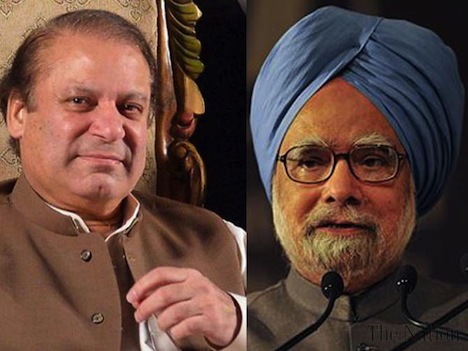While we still bask in the glow of tectonic movement between the United States and Iran, as well as an apparent resolution among the Security Council over Syria’s chemical weapons, there’s a third diplomatic front to keep an eye on.![]()
![]()
For all of the hype over the potential meeting between US president Barack Obama and Iranian president Hassan Rowhani earlier this week at the United Nations General Assembly, tomorrow’s meeting between Pakistan’s new prime minister Nawaz Sharif and India’s outgoing prime minister Manmohan Singh comes at a crucial time — in the wake of an attack by Pakistani militants earlier this week in contested Jammu that seemed designed to keep the two south Asian neighbors at odds.
Sharif is just barely 100 days into his third term as prime minister and Singh is a lame-duck who will leave office no later than May 2014 after India’s next elections. While there’s a limit to what the meeting can accomplish, it’s important for at least five reasons, I argue this morning in The National Interest:
- Boosting regional security will be even more important as the United States draws down troops from the Af-Pak theater in 2014.
- Aside from Pakistan’s election in May, Iran’s election in June and India’s elections next year, Afghanistan will elect a president next spring and Bangladesh will hold elections in January. That means we could see five new leaders in the span of one year in southwest Asia, in addition to this year’s leadership transition in the People’s Republic of China.
- Greater ties between India and Pakistan could boost both countries’ underperforming economies. Freer trade is low-hanging fruit.
- The meeting can cement Sharif’s credentials as a strong — and democratic — leader as he contemplates who will succeed Ashfaq Parvez Kayani as the next army chief of staff.
- Finally, while the world cares more about the potential of a nuclear-armed Iran, it’s easy to forget that both Pakistan and India have had nuclear weapons for a decade and a half. Cooperation between the two countries not only improves regional stability, but global stability.
